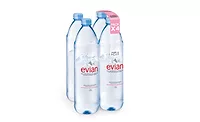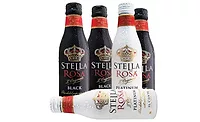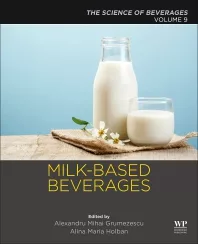Study says aluminum cans carry a lower carbon footprint
Report combines greenhouse gas emissions from transportation, refrigeration of beverage in calculations
According to a new study conducted by the ICF International, Fairfax, Va., for the Aluminum Association, Alexandria, Va., the combined greenhouse gas (GHG) emissions associated with the transportation and refrigeration of beverages in aluminum cans are lower than those associated with beverages in glass or plastic bottles under the same conditions.
Overall, the study finds that on a per liter beverage basis, emissions associated with transporting and cooling aluminum cans are 7 to 21 percent lower than plastic bottles and 35 to 49 percent lower than glass bottles, depending on the size of the comparative bottles as well as the types of refrigerators in which beverage is cooled prior to consumption, it adds.
On a per container basis, the associated emissions of a beverage packaged in a 12-ounce aluminum can is 45 percent lower than in a 12-ounce glass bottle and 49 percent lower than in a 20-ounce plastic bottle when delivered and chilled in small markets and convenience stores.
The study analyzed the standard serving size for each container, which can vary, as well as a per-ounce equivalent. In both scenarios, the shape, dimensions, weight and material of the aluminum can offered higher packaging and cooling efficiencies, resulting in less energy needed and lower emissions, the study found.
“As the world focuses on low-carbon solutions, it is important to understand where the opportunities are to make a real difference,” said Heidi Brock, president and chief executive officer of the Aluminum Association, in a statement. “The study underscores the advantages of the aluminum can when it comes to sustainability.”
The goal of this study is to provide greater insight into the lifecycle GHG impacts and energy use associated with the transportation and refrigeration of aluminum beverage containers, and how these impacts compare with alternative beverage containers. Although the production and recycling of beverage cans have been previously studied, the new research considered emissions associated with the service life of the product — also referred to as the “use phase.”
“As more attention is paid to carbon emissions associated with the entire value chain of a product, the Aluminum Association asked ICF to look at the carbon footprint of a beverage container’s use phase,” said Marian Van Pelt, vice president at ICF International, in a statement. “Across all scenarios studied, aluminum has lower associated use-phase emissions than comparable glass or plastic containers.”
The following are some of the study’s key findings:
· Transportation: The space efficiency and lower packaging weight during transportation offered by aluminum results in 35 percent lower emissions than glass bottles on a per ounce basis.
· Refrigeration: Space efficiency during beverage cooling allows for lower GHG emissions for aluminum cans compared with both glass bottles and plastic bottles. The largest GHG emissions savings from aluminum cans compared with other containers are seen in supermarket refrigerators.
For more information on the study and previous research associated with the carbon footprint and life cycle analysis of the aluminum can, visit http://www.aluminum.org/canadvantage. To download the full report, visit http://www.aluminum.org/sustainabilityreports.
Looking for a reprint of this article?
From high-res PDFs to custom plaques, order your copy today!








